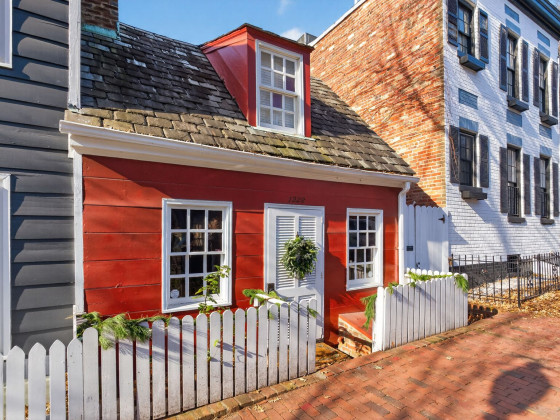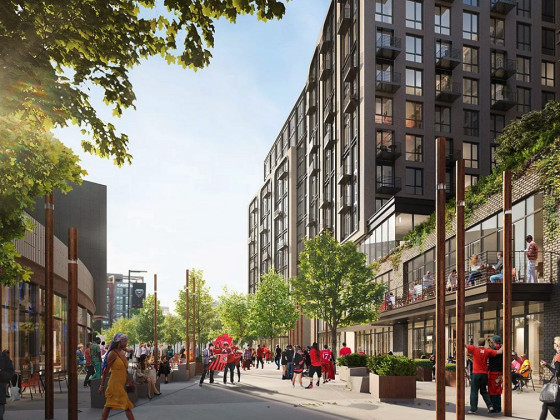 When Appealing a Property Tax Assessment in DC Fails
When Appealing a Property Tax Assessment in DC Fails
✉️ Want to forward this article? Click here.

It’s property tax assessment season, and yesterday, UrbanTurf ran down what steps to take to file an appeal of your assessment with the DC Office of Tax and Revenue and the Real Property Tax Appeals Commission (RPTAC). Today, we’re giving homeowners an idea of what to expect from the process. In short, expect an uphill battle.
There are three levels when it comes to appealing a property assessment, and it’s at the second level of appeal that the RPTAC comes into play.
In the past year, 4,507 valuation appeals went to RPTAC, of which 3,290 were residential. That was a big increase for the small commission, with valuation appeals up 1,236 from the year before. Residential can include multifamily buildings but mostly includes private homeowners.
From those 3,290 appeals that reached the second level,1,381 were settled between property owners and the DC Office of Tax and Revenue, meaning they didn’t end up going before the commission itself. These homeowners were generally offered some kind of reduction in their valuation, according to RPTAC. This settlement stage is the best chance homeowners have of obtaining a reduction in the second level of the appeals process.
Of those appeals that went in front of the commission — a total of 1,909 — just 262 property owners were given reductions. That’s about a 14 percent success rate.
There are a few reasons for the low rate of success on the part of homeowners appealing their assessments before RPTAC. For one thing, it may be difficult for the average homeowner to make a convincing case before the commission, which is more receptive to commercial real estate appeals than other appeals. A recent letter from commission head Gregory Syphax to the DC Council suggested most adjustments made by RPTAC are done so in response to an adjustment to the capitalization rate. That figure is much more useful, and familiar to, commercial real estate owners. Adjustments to market rent estimates come in second, while adjustments to expense estimates and vacancy rates come in next. The average homeowner probably can’t take advantage of those types of adjustments.
Next the commission makes adjustments or reduces assessments “based on atypical conditions that may have been overlooked by the assessor,” which could include the need for repair or renovation; “locational obsolescence,” which refers to changes in the home’s immediate environment that may lower property value; or zoning restrictions.
Syphax also noted that many homeowners don’t bring good evidence or arguments into their hearings.
“Residential appeals are not typically made based on arguments of improper assessment methodology as much as they are on the issue of need, the inability to pay the taxes, the perceived unfairness or the perceived inequality of the assessment process,” Syphax wrote. “Homeowners come to us with those kinds of issues which often have little to do with valuation as much it does a tax rate issue. In fact, most do not understand the valuation process at all. Others think they do and put forth a lot of time and effort in preparing for their appeal, only to find out that much of the information they provided us is irrelevant for determining the estimated market value of their property.”
Meanwhile, commercial real estate appeals tend to come from hired representatives familiar with how to obtain a reduction in an assessment.
“Knowing that an assessment is merely an estimate of value based on certain opinions and estimates derived from an ever-changing market, these (professional) Petitioners are always looking for different angles to make their arguments as to what the fair assessment should be for their client’s property,” Syphax wrote.
See other articles related to: property assessments, property taxes, rptac
This article originally published at http://dc.urbanturf.production.logicbrush.com/articles/blog/when_appealing_a_property_tax_assessment_fails/9595.
Most Popular... This Week • Last 30 Days • Ever

The developer is under contract to purchase Land Bay C-West, one of the last unbuilt ... read »

On Thursday night, developer EYA outlined its plans at a community meeting for the 26... read »

If the walls of 1222 28th Street NW could talk, they'd have nearly three centuries wo... read »

The plan to replace the longtime home of Dance Loft on 14th Street with a mixed-use ... read »

Even with over 1,100 new apartments delivering in the last 18 months, the new develop... read »
- The Last Piece of Potomac Yard: Mill Creek Residential Pitches 398-Unit Apartment Building
- A First Look At Friendship Commons, The Big Plans To Redevelop Former GEICO Headquarters
- One of DC's Oldest Homes Is Hitting the Market
- Plans For 101 Apartments, New Dance Loft On 14th Street To Be Delayed
- The Nearly 2,000 Units Still In The Works At Buzzard Point
DC Real Estate Guides
Short guides to navigating the DC-area real estate market
We've collected all our helpful guides for buying, selling and renting in and around Washington, DC in one place. Start browsing below!
First-Timer Primers
Intro guides for first-time home buyers
Unique Spaces
Awesome and unusual real estate from across the DC Metro













